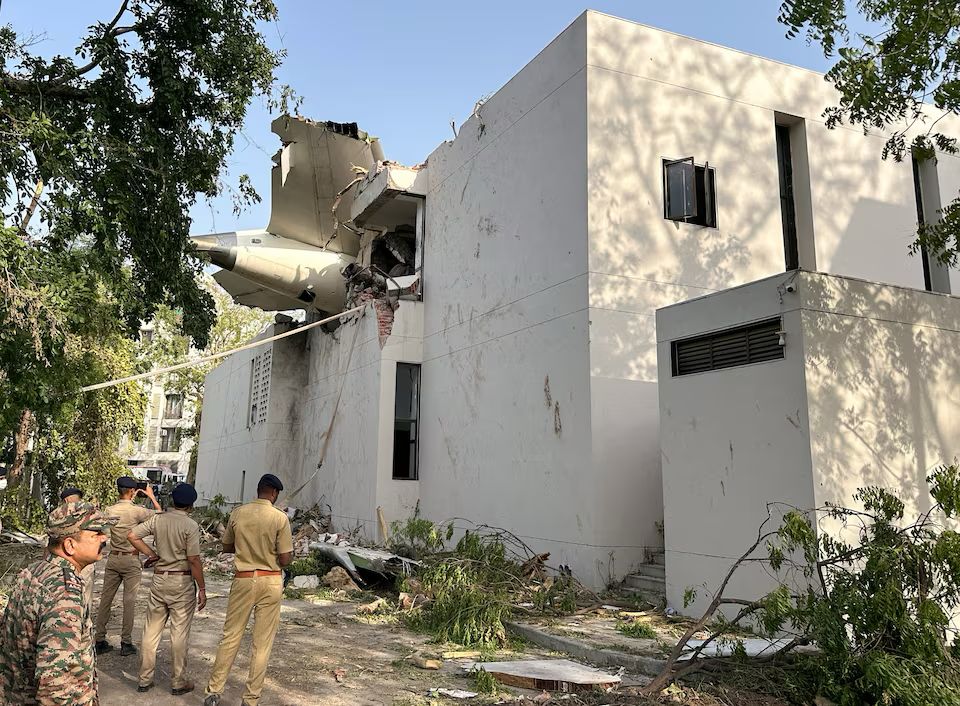The families of four victims who perished in the Air India Flight 171 disaster have filed a lawsuit in the United States against aerospace giants Boeing and Honeywell, alleging negligence and a defective fuel cutoff switch contributed to the crash that claimed 260 lives.
The aircraft, a Boeing 787-8 Dreamliner, went down shortly after departing Ahmedabad for London on 12 June. The complaint, lodged on Tuesday in Delaware Superior Court, asserts that the locking mechanism for the fuel cutoff switch could be inadvertently disengaged or entirely absent, leading to a loss of fuel supply and thrust during takeoff.
Boeing, which installed the switch, and Honeywell, its manufacturer, are accused of being aware of the hazard, particularly following a 2018 advisory from the US Federal Aviation Administration (FAA) concerning disengaged locking mechanisms on several Boeing aircraft.
India’s Aircraft Accident Investigation Bureau (AAIB) reported in its preliminary findings that Air India had failed to carry out recommended inspections. Maintenance records revealed the throttle control module, housing the fuel switches, had been replaced in 2019 and again in 2023 on the ill-fated aircraft.
Cockpit voice recordings suggest the captain may have manually cut fuel flow to the engines. The lawsuit contends that the switches are positioned in such a way that they are susceptible to accidental activation during routine cockpit operations.
However, aviation safety experts interviewed by Reuters disputed this claim, stating that the switches’ location and design made inadvertent activation unlikely.
Boeing, headquartered in Arlington, Virginia, declined to comment. Honeywell, based in Charlotte, North Carolina, did not respond to requests for comment. Both firms are incorporated in Delaware.
This legal action is believed to be the first in the United States related to the crash. The suit seeks unspecified damages for the deaths of Kantaben Dhirubhai Paghadal, Naavya Chirag Paghadal, Kuberbhai Patel and Babiben Patel, all of whom were among the 229 passengers killed. The tragedy also claimed the lives of 12 crew members and 19 individuals on the ground. One passenger survived. The plaintiffs are citizens of either India or the United Kingdom.
Investigators from India, the UK and the US have yet to reach a definitive conclusion regarding the cause of the crash. The AAIB’s July report appeared to absolve Boeing and engine manufacturer GE Aerospace, though some relatives of victims have criticised the investigation and media coverage for placing undue emphasis on pilot error.
FAA Administrator Bryan Bedford stated in July that he had a “high level of confidence” that mechanical failure or accidental manipulation of fuel control components was not responsible.
Legal experts note that while aviation accidents typically result from multiple contributing factors, lawsuits often target manufacturers, who are not bound by the same liability limitations as airlines. This approach can also facilitate proceedings in US courts, which are generally perceived as more favourable to plaintiffs than those in other jurisdictions.
Boeing previously faced over $20bn in legal and related costs following two fatal crashes involving its 737 Max aircraft in 2018 and 2019, which led to the model being grounded for 20 months.



